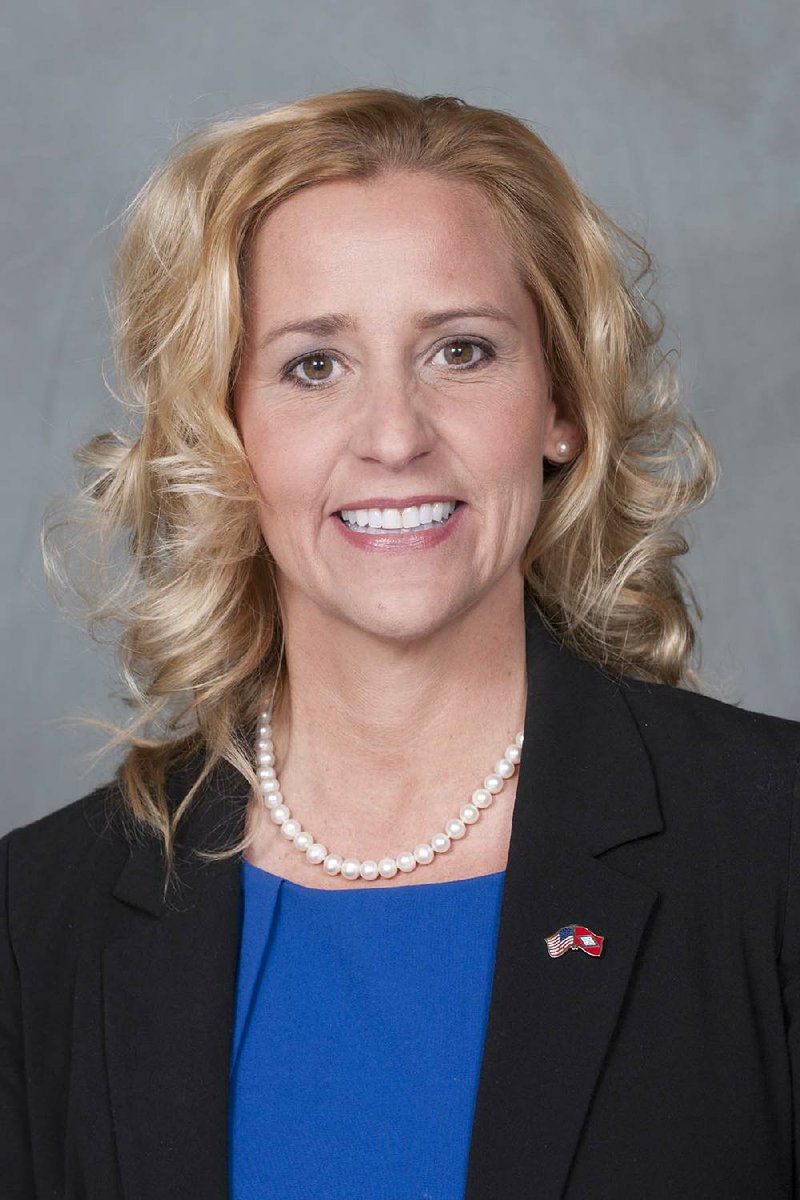The state's next top attorney said she will stick to her campaign pledge to not bring a legislative agenda to the Capitol come January.
Though past incoming attorneys general have proffered a set of legislative goals, Republican Leslie Rutledge said that her top priority is what she says should be the top priority of the attorney general's office: being available and responsive to legislators and helping them craft clean state statutes.
"[Our first goal] will be working with the legislators through the session to ensure that laws that we do pass, statutes we do enact will be upheld if challenged," Rutledge said. "It is still not my intention to have a legislative agenda or package. The [attorney general's office] is [there] to enforce and defend the law."
Rutledge, the first Republican elected to head the approximately 170-person agency since Reconstruction, said she anticipates legislators will seek guidance on education, prisons and parole, and the private option, which uses federal funds to provide private health insurance policies to poor Arkansans.
Whatever the issue, Rutledge said, she's confident that her agency will be up to the challenge.
"I am blessed to have a number of good people, good lawyers on staff we will be retaining," Rutledge said. "If we see something [in proposed legislation] that should be red flagged, that perhaps conflicts with a statute that's already in place, to make them aware of that."
Rutledge, a former aide to Gov. Mike Huckabee as well as clerk in the Arkansas Court of Appeals, is already making good on another campaign promise weeks before taking office.
At Rutledge's request, outgoing Democrat Attorney General Dustin McDaniel joined 23 other states Dec. 9 in a legal effort to block the Nov. 20 executive action from President Barack Obama that would expand legal protections to about 5 million people living in the nation illegally.
Rutledge, who campaigned against burdensome federal oversight, as well as overreach from Obama's administration, said she thought the state needed to get off "the sidelines" in a case that seeks to resolve questions of executive authority.
The next issue, Rutledge said, could be a challenge to a proposed rule from the Environmental Protection Agency that seeks to decrease overall carbon emissions in states by 2030.
In Arkansas, the EPA formula would result in 45 percent drop from its power plants, the majority of which are coal.
Both McDaniel and incoming Republican Gov. Asa Hutchinson have objected to the proposed rule, arguing that it puts an undue burden on the state and that the EPA lacks the authority for such a broad regulation.
Rutledge said the proposed rule likely will be the next "hot topic" for states and that it was too early to tell if Obama and federal regulators would push forward with the regulation.
"[The proposed rule could] limit job growth. Industry, quite frankly, will have much higher standards. ... Industry would not want to come to Arkansas to provide jobs in Arkansas," Rutledge said. "Not only are we looking at the people who provide the jobs, but we're looking at the consumers. ... [We're] looking out for ratepayers across the board, and [the new rule] will increase the cost to ratepayers across the state."
Although she won't be bringing a legislative package, Rutledge said she is a believer in drug courts and thinks the alternative court process could help bring down the number of inmates clogging state prisons and county jails.
A former deputy prosecutor in Lonoke County, Rutledge said she's seen how effective they can be, replacing incarceration with job-skill programs and other resources to straighten out drug-crime offenders.
The state spends about $7 million to run its 43 drug courts but relies on judges, prosecutors and public defenders who increase their workload without receiving extra compensation.
Given a legislative budgeting climate that looks to be tight, when asked if she would advocate for more funding, or to pay more to the judges and attorneys involved, Rutledge agreed that spending would be tight.
"Hopefully we'll continue to have plenty of good people willing to do these, take on these duties and responsibilities, whether it's the judges or the people in the communities working with the individuals in drug courts," she said.
Metro on 12/26/2014
